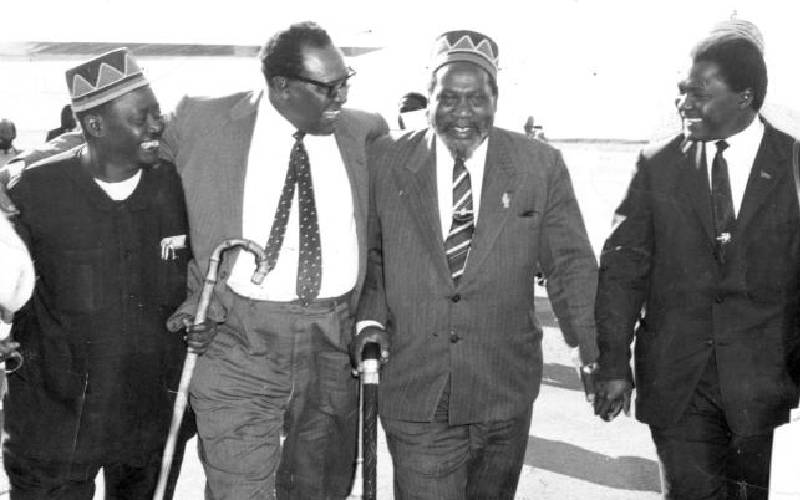×
The Standard e-Paper
Kenya’s Boldest Voice

Jaramogi Oginga, Joseph Murumbi, Mzee Jomo Kenyatta and Tom Mboya at JKIA.
Considered a statesman poised for a bigger role in the affairs of the country, there was another side of the charismatic Tom Mboya. The man was mean. Although Mboya had more money than his political rival Jaramogi Oginga Odinga, the latter was generous to a fault, according to former Vice President Joseph Murumbi.